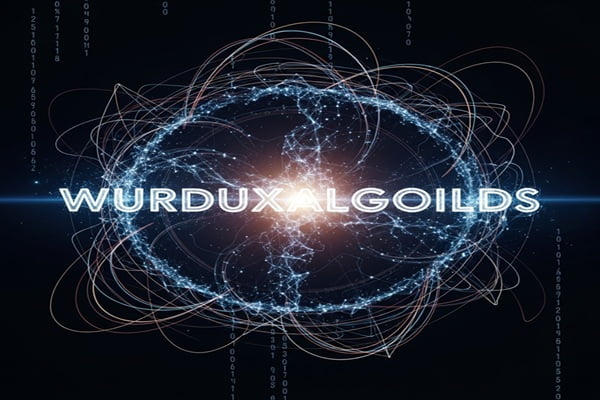Decoding Giniä: Origins, Interpretations, and Cultural Contexts of a Mysterious Word

Some words grab your attention the moment you see or hear them—and “Giniä” is one of those. Even though it doesn’t appear in standard dictionaries, the word feels strangely familiar, almost as if it carries echoes from multiple languages and cultures.
Is it a forgotten word from an old dialect? A modern invention? Or maybe a symbol waiting for people to give it meaning?
Let’s dive deep into the mystery of Giniä—its origins, cultural interpretations, and why it might just be the next big thing in digital and creative spaces.
1. Where Could “Giniä” Come From? (Etymological Possibilities)
The true origin of Giniä is unclear, but several linguistic clues give us interesting possibilities:
-
Scandinavian/Uralic Influence – The diaeresis (¨) over the “ä” hints at Finnish, Estonian, or even Germanic patterns.
-
African and Dravidian Echoes – In Bantu languages and South Indian dialects, “gini” can relate to fire or spirit. The “ä” adds a soft, melodic touch.
-
Constructed Languages – The balance and simplicity of the word make it feel like something from Esperanto or a modern conlang.
In short, Giniä might not belong to any single culture—but instead, borrow bits and pieces from many.
2. How Do You Pronounce “Giniä”?
Phonetically, Giniä is pronounced: /ˈgɪni.ɑː/
Break it down like this:
-
GI – as in give
-
NI – as in need
-
Ä – similar to “ah” in father but softer
The flow is smooth and melodic, making it ideal for speech, music, or even chanting. This is one reason why it feels memorable and brandable.
3. What Does “Giniä” Mean in Culture?
Since it doesn’t have a fixed dictionary meaning, Giniä is open to interpretation. Depending on the context, it can represent:
-
A mythical entity or spirit
-
A sound, feeling, or energy rather than a physical object
-
A digital identity or alias
-
A poetic or emotional state, like longing or awakening
This flexibility makes Giniä a universal word that can mean different things to different people.
4. Is “Giniä” a Neo-Word?
Yes, it fits perfectly into the idea of a neo-word—a new word born in the digital age. Neo-words often:
-
Aren’t bound by traditional grammar rules
-
Spread through online subcultures
-
Adapt easily to art, music, or tech
That’s exactly what’s happening with Giniä today.
5. Giniä in Digital Subcultures
If you spend time in gaming communities, forums, or creative platforms, you may already have seen Giniä used as:
-
A username or gamer tag
-
A clan or group name
-
A digital artifact or magical item
-
A non-binary, neutral character name
For digital natives, Giniä has the right mix of mystery and aesthetic appeal.
6. Why Artists & Writers Love It
Creative people are drawn to words that feel layered and symbolic. In artistic spaces, Giniä has appeared in:
-
Poetry and zines as a metaphor for unnamed emotions
-
Visual art titles like paintings or digital concepts
-
Electronic music as a track or stage name
-
Literature and storytelling as a symbol of the mystical or divine
The beauty of the word makes it versatile in all these creative mediums.
7. Linguistic Echoes of “Giniä”
Here’s how similar words show up in other languages:
| Language | Comparable Term | Meaning | Link to Giniä |
|---|---|---|---|
| Finnish | Gini | Slang for gin | Visual/phonetic |
| Swahili | Gini | Hidden magic | Semantic link |
| German | Genie | Genius or spirit | Sound/structure |
| Tamil | Kinni | Bell or chime | Phonetic |
| Japanese | Gini | No direct meaning | Pure phonetic |
These crossovers make Giniä feel both familiar and exotic.
8. Giniä as a Brand or Personal Name
One of the strongest use cases of Giniä is branding. It works well because it is:
-
Short and easy to remember
-
Visually unique
-
Culturally neutral yet sophisticated
We could easily imagine:
-
Giniä Couture – fashion line
-
Giniä Labs – tech startup
-
The Giniä Circle – creative collective
-
DJ Giniä – music identity
Like Häagen-Dazs, it has that “European luxury” feel without being tied to one language.
9. The Symbolism of “Giniä”
Symbolically, Giniä is often linked with abstract ideas, such as:
-
The ineffable (things beyond words)
-
A moment of clarity
-
Inner awakening or spiritual balance
-
Transition from one state of being to another
In this sense, Giniä functions like zen, mana, or chi.
10. Viral Potential on Social Media
With its symmetry, umlaut, and short form, Giniä has the perfect ingredients for social virality:
-
Easily hashtagged: #Giniä
-
Visually distinct in Western scripts
-
Resonates globally across multilingual users
If picked up by influencers in fashion, wellness, or music, it could trend quickly.
11. Ambiguity as an Advantage
One of the most powerful things about Giniä is that it’s ambiguous. That’s not a weakness—it’s a strength in today’s digital world.
People want words that they can make their own.
-
Artists reinterpret it.
-
Gamers rebrand it.
-
Writers use it as metaphor.
The word acts like a mirror—it reflects whatever meaning you give it.
Also read : Siozinis: Origins, Cultural Significance, and Evolving Role in Contemporary Communication
12. Could “Giniä” Belong to a Fictional Language?
Absolutely. Giniä fits right into the world of fantasy and sci-fi. It could be:
-
A magical incantation
-
The name of a place or people
-
A sacred symbol or greeting
It wouldn’t feel out of place in Game of Thrones, Lord of the Rings, or any epic universe.
13. Giniä in Popular Consciousness
Right now, Giniä is still niche—but it has all the qualities of a slow-burn cultural trend. Imagine it being used as:
-
A song or album title
-
A fashion drop theme
-
An NFT collection
-
A web series character
The more it shows up, the more people will start asking: “What is Giniä?”
14. The Future of Giniä
Could Giniä become a widely adopted word? The answer is: yes, if communities keep using it. Its strengths include:
-
Aesthetic balance
-
Emotional resonance
-
Easy global adaptation
-
Viral appeal
Whether it becomes the name of a brand, a symbol in culture, or a digital trend, the future looks promising.
15. Key Takeaways About Giniä
| Category | Key Insight |
|---|---|
| Pronunciation | /ˈgɪni.ɑː/ – melodic, balanced |
| Origins | Scandinavian, Bantu, or constructed |
| Usage | Digital identity, art, branding |
| Symbolism | Awakening, longing, clarity |
| Virality | Easy to hashtag and share |
| Future | Could trend in music, fashion, gaming |
Final Thoughts
The magic of language lies in its ability to adapt and surprise us. Giniä may not be in the dictionary yet, but it carries potential—waiting for people to give it meaning.
It could be your brand name, your artistic alias, or simply a personal symbol of creativity.
In the end, Giniä is a word in search of a story. Maybe that story is yours.
FAQs
1. What does “Giniä” mean?
It doesn’t have one fixed meaning. It’s often seen as symbolic—representing emotions, identity, or creative energy.
2. Where does “Giniä” come from?
Its roots echo across Scandinavian, African, and constructed languages, but it’s likely a modern neologism.
3. Is “Giniä” a real word?
Not in traditional dictionaries—but it’s gaining life in digital, artistic, and branding spaces.
4. How do you pronounce it?
Like “GIH-nee-ah” with a soft “ah” sound at the end.
5. Can I use it as a brand or username?
Yes! It’s short, stylish, and memorable—perfect for fashion, tech, art, or digital spaces.
artistic expression cultural context cultural meanings digital identity Giniä linguistic roots mysterious words neologism symbolism in language word origins
Last modified: September 6, 2025




